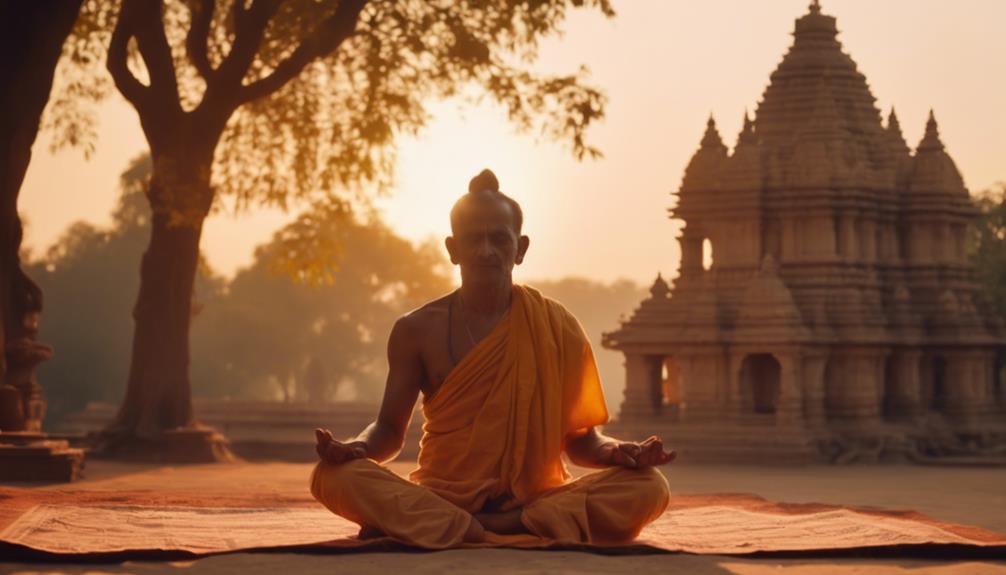
In a world where spiritual practices and wellness trends often collide, yoga stands out as a popular choice for many seeking mindfulness, flexibility, and a connection to their inner selves. However, for Catholics, the question arises: is yoga compatible with their faith, or is it considered a sin? This article aims to unravel the sacred beliefs surrounding yoga within Catholicism, and explore the cheerful controversies that surround this ancient practice.
Unraveling the Sacred: Is Yoga a Sin in Catholicism?
At the heart of the discussion about yoga and Catholicism is the perception that yoga is rooted in Eastern spirituality and philosophies that may contradict Catholic teachings. Some Catholics argue that the meditative aspects of yoga, particularly its emphasis on connecting with a higher consciousness or universal energy, could lead practitioners away from a relationship with God. This concern stems from a desire to maintain a clear distinction between their faith and practices that are perceived as foreign or incompatible with Catholic doctrine.can i do yoga after botoxwhat is yin yoga benefitsis yoga good for scoliosis
Moreover, certain yoga poses and practices are often linked to Hindu deities and rituals, prompting some Catholic leaders to caution against adopting a practice that may inadvertently honor beliefs contrary to Christianity. The concern here revolves around the idea of idolatry—worshiping or venerating anything other than God. As a result, some individuals and clergy express hesitance in incorporating yoga into their spiritual lives, worried that it could dilute their Catholic identity.
However, it’s important to recognize that not all Catholics view yoga in the same light. Many see yoga merely as a physical exercise, a means to enhance bodily well-being while cultivating mindfulness. This perspective highlights a growing trend among Catholics who choose to embrace yoga for its health benefits without necessarily endorsing its spiritual origins. Thus, the question of whether yoga is a sin in Catholicism remains a complex and nuanced debate.
Stretching Beliefs: A Cheerful Dive into Yoga’s Controversy!
Despite the concerns some Catholics have regarding yoga, many find it to be a joyful practice that promotes physical health, mental clarity, and emotional stability. As we delve into the controversy, it’s essential to recognize the positive outcomes yoga can bring to one’s life. Practitioners often report enhanced flexibility, increased strength, and reduced stress levels, which can all lead to a more harmonious existence—something that many would argue aligns beautifully with Christian values of caring for the body as a temple of the Holy Spirit.
Moreover, the practice of mindfulness and meditation that accompanies yoga can be interpreted as a way to deepen one’s relationship with God. For many, the focus on breath and being present opens doors to prayer and reflection. By cultivating a peaceful mind and a grateful heart, practitioners can draw closer to their faith and develop a more profound appreciation for the beauty of creation. This perspective presents a friendly bridge between the world of yoga and Catholicism, suggesting that the two can coexist in a harmonious manner.
Ultimately, the controversy surrounding yoga in the Catholic community invites a broader conversation about spirituality and the personal interpretation of faith. While some might see yoga as incompatible with Catholicism, others embrace it as a tool for enhancing their spiritual journey. In this light, yoga transforms from a contentious practice to a personal choice, allowing individuals to stretch their beliefs and explore the intersection of faith and wellness in an uplifting and joyful way.
In conclusion, the question of whether yoga is a sin in Catholicism is as intricate as the poses themselves. While some may see it as a departure from their faith, others find it to be a delightful addition that nurtures both body and spirit. Embracing a cheerful outlook, it’s essential to recognize that spirituality can be multifaceted and deeply personal. As Catholics continue to navigate the waters of modern wellness practices, one thing remains clear: the ultimate goal is to foster a closer relationship with God, whether through yoga, prayer, or any other path that resonates with their heart.





